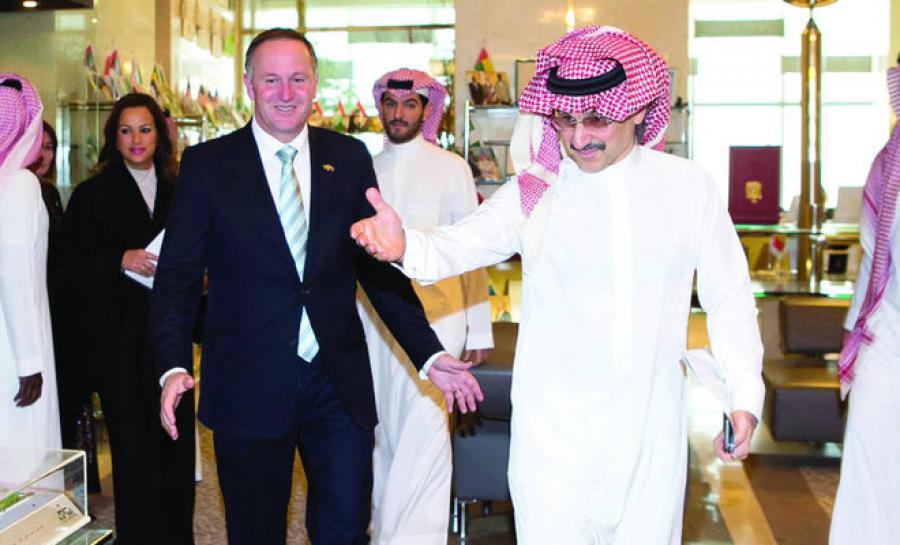Somewhat surprisingly the prince at this same meeting in Riyadh declared that he had also met another New Zealand prime minister, Jim Bolger, during a princely visit to New Zealand in 1997.
This was the era of the high water mark of New Zealand-Saudi relations.
The era of flat-out live sheep shipments to fuel pilgrims during the haj.
Few understand that these pilgrimages are the source of much of the Saudi non-oil revenue and especially so in the form of visa fees.
Another point overlooked is that this was the era in which New Zealand seemed so favourably positioned to provide Saudi Arabia with the other commodity it so thirstily requires which is fresh water.
It is fanciful to conclude that now live sheep and fresh water are doctrinally undeliverable and for political reasons and that these two delivery failures might have contributed to the prince’s precipitous downfall.
In any case, the former prime ministerial voices of John Key and Jim Bolger in support of the imprisoned prince if they have been made, have been publicly inaudible.
The prince donated $100,000 to help victims of the Canterbury earthquakes in 2011 and it is not known if anyone in an official capacity in the Garden City has put in a word in the prince’s favour.
The New Zealand deputation to Riyadh led in his last term in office by John Key and with the broad objective of spurring along the hope for an alliance with the Gulf Cooperation Council was inconclusive just because it could not politically, even then, give the Saudis what they wanted – the fresh water and the live sheep.
Another problem in Saudi Arabia that is not widely perceived in New Zealand is that the kingdom is in the throes of a population explosion and consuming an ever growing proportion of its own output in terms of the energy needed for things like air conditioning and de-salinisation.
Back now though to the prince who after the purge at the start of November has now been transferred from the original holding tank at the Ritz Carlton in Riyadh to a public gaol.
Where did he go wrong?
Was it his ultra lavish and very public lifestyle?
Arabs have a saying which declares that if you intend to drop a gold piece then it is better to drop it on a marble floor than on a rug.
Was it the official reason, namely that he was involved in corruption?
This would have been a contributing factor, especially as the prince branched out increasingly into high profile property development.
Another Arab saying warns us of the dangers of “much buying and selling, yet with nothing on the table.”
So viewing its own mounting state deficits, Saudi’s central monarchy would have viewed the prince’s high profile dealings exactly in such a context.
Another Arab proverb, and a more widely known one, takes us to the most likely explanation.
It is the saying that the enemy of my friend is my enemy.
In business of any scale at all the mistake that puts you out of business is the one that at the time you do not realising that you are making.
The prince made the mistake of making a quite unnecessary enemy of Donald Trump, who like successive Republican presidents is the biggest friend Saudi Arabia possesses.
The prince had listened to the United States elites to the effect that Donald Trump had no chance of winning the election.
He then embarked upon a foolish twitter campaign scorning the soon-to-be elected US President.
Big mistake. The Saudi central monarchy knows that President Donald Trump operates on a personal basis. The incarceration of the turbulent prince therefore fills two objectives. It suits the kingly line. It pleases President Trump.
The business of the United States is of course business and this is the reason that the princely pals are keeping their heads down.
| From the This email address is being protected from spambots. You need JavaScript enabled to view it. || Tuesday 23 January 2018 |||

